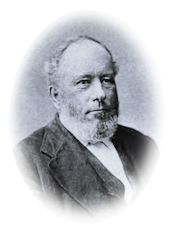A Trip into the Country.
MAY 9. After nearly two months of scrubbing and cleaning, with new caps and pants, the 25th regiment stands in column of platoons on Polloek street, as tony a looking regiment as there is in the service. The colonel and staff with the band take the head of the column, and amid the cheers of hundreds of darkies, the march commences. Leaving the city we soon enter the woods, and after marching about three miles, come out to a cotton plantation. Here we make a short halt and look over the place. It looks rather run down, the house is old and out of repair, the negro quarters are built of logs, and look as though they were hardly habitable. But I presume everything on a plantation has to correspond. The gentlemanly proprietor, whoever he was, has left, taking with him the best of his servants, leaving here a few old ones to shift for themselves.
A few miles further on, we came to another cotton plantation. This presented a better appearance, a neat cottage house, painted white with green blinds, good barns and surroundings. The negro quarters were comfortable looking houses, built of boards, with glass windows, and whitewashed. This gentleman with his servants had also gone up the country. About two miles further on, at a fork of the road, we found the 17th Massachusetts, Col. Amory, doing picket duty. Here a road branched to the right leading into the woods, which we took, following it about four miles, coming out at a small clearing, where was a little red house and log barn, with a few negro cabins. This is known as the Red house, and we relieve the 23d Massachusetts, which is doing picket duty. And this then is to be our home for a while. It certainly is retired and rural, not another house within four miles of us. The clearing is not over twelve or ?fteen acres in extent, with a small creek running through it. Woods to the right of us, woods to the left of us, woods to the front of us, woods all around us. This surely must be the place for which Cowper sighed, when he wrote,
“O! for a lodge in some vast wilderness.”
.
After getting a little rested from the long march, we pitched our tents in a ?eld a short distance from the house. The colonel and his family, with the band, pitched their camp in the large shady yard next to the house. The tents up, the picket guard is detailed and posted; a part of them along the road we came up, and connecting with the 17th Massachusetts, a part along the road to the right, and connecting with the 27th Massachusetts stationed at Bushellor’s creek, and the balance along the roads and horse paths leading into Dixie. The tents up, the pickets out, dress parade and supper over, I reckon the country must be safe for one night at least, and I will improve it by trying to get some sleep and rest, for it, will be just my luck to be on the detail tomorrow.
